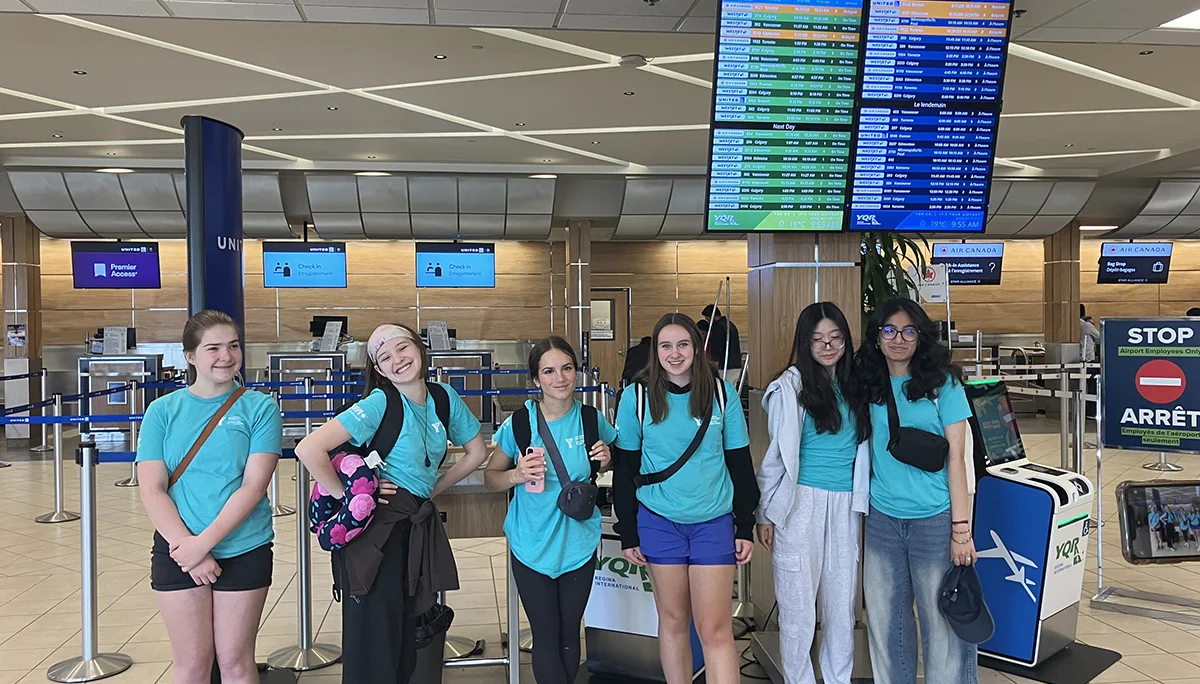
FAQ
Thinking about joining the YMCA Summer Work Student Exchange (SWSE) program or hosting a participant? Our FAQ covers all the key details to help youth and families feel prepared and confident about the program.
Frequently Asked Questions - Participants
There is a $200 registration fee (to be confirmed) due upon acceptance. If this fee is a barrier, it can be waived, or a payment plan can be arranged.
The program covers round-trip travel to your host community and costs for activities organized by your local coordinator. Host families provide three meals a day. The main personal expenses are transit to and from work and any personal spending.
It’s a six-week summer exchange.
You’ll travel to and live in another Canadian community with a host family. In turn, your family may host an incoming youth.
Placements are generally assigned and announced closer to the exchange date. If you know someone in another city who also wants to participate, we will try to accommodate, depending on program logistics and available staff.
You must be 16 or 17 years old at the start of the program. (For 2026 exchanges, your birthday must fall between June 28, 2008 and June 27, 2010.) You must live in and be eligible to work in Canada, and your family must be able to host another youth during the exchange. If this is a challenge, contact us — we may be able to arrange alternatives.
No. There is no minimum level of French required to join the program.
You’ll work full-time with a non-profit or public sector organization and be paid at the province’s minimum wage. Past placements have included:
• Museum or cultural centre assistant
• Science camp or sports camp counsellor
• Media arts support
• Community service roles
Local coordinators organize activities three times a week to help you discover your host community and bond with your group. Examples include:
• Arts & culture: Shakespeare in the Park (Toronto)
• Sports: Circus school (Quebec City)
• Truth & reconciliation: Learning with Indigenous elders (Quebec)
• Fun outings: Amusement parks
• Community service: Volunteering at an animal shelter
Hosting an incoming youth is a required part of the SWSE exchange experience. We understand, however, that families may sometimes face challenges or barriers that make hosting difficult. If that’s the case, please reach out to our team — we’ll work with you to discuss your situation and explore possible supports.
Frequently Asked Questions - Hosts
The program lasts six weeks, from late June or early July until mid-August.
Host families are required to provide:
• Food and lodging
• A bed in a shared or single bedroom
• A warm and welcoming environment
• Transportation to and from program activities located in rural communities
Our goal is to make hosting a youth accessible for as many families as possible. Program staff consider the host family's needs and expectations when making a placement decision. Here are examples of how we can help:
• Financial support for the purchase of food when needed
• Finding an extra bed for an incoming participant
• Translation and communication support for families who are developing English language skills
• Organizing carpooling for hosts with limited or no access to transportation
You are not required to speak French, but at least one person living in your home should have basic English skills.
The safety of youth, employees, hosts, and community partners is at the core of our principles, so every adult involved in the program must do a police record check.
We ask families to commit to hosting for the entire program. However, should a problem arise, our employees will be there to support you and find a quick, reliable solution.
Our team will be available to help you manage any situation you may encounter while hosting participants.
